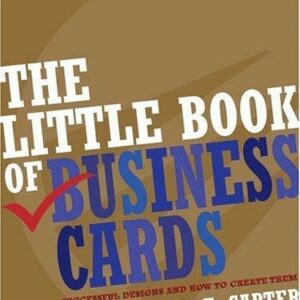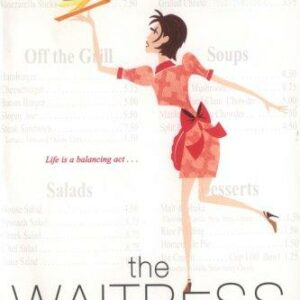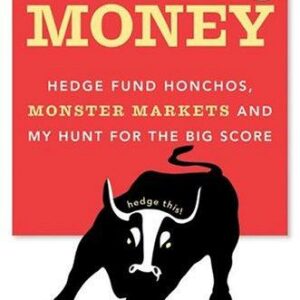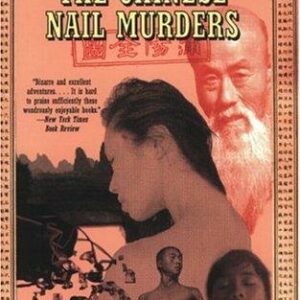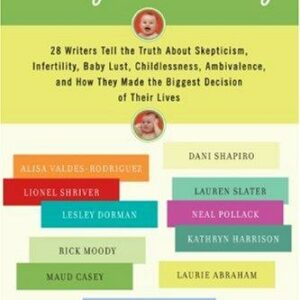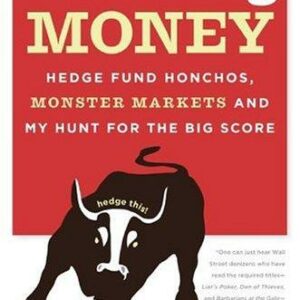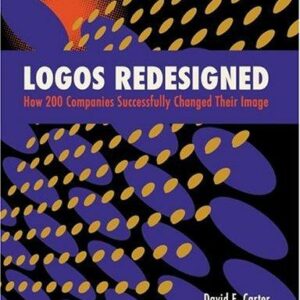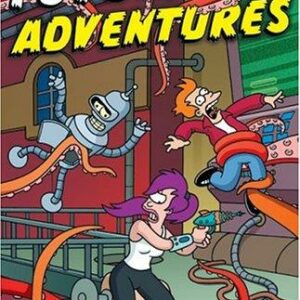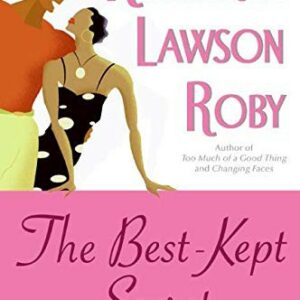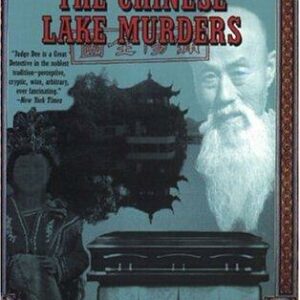The Bridge at Andau
$17.00
| Title | Range | Discount |
|---|---|---|
| Trade Discount | 5 + | 25% |
- Description
- Additional information
Description
The Bridge at Andau is James A. Michener at his most gripping. His classic nonfiction account of a doomed uprising is as searing and unforgettable as any of his bestselling novels. For five brief, glorious days in the autumn of 1956, the Hungarian revolution gave its people a glimpse at a different kind of future—until, at four o’clock in the morning on a Sunday in November, the citizens of Budapest awoke to the shattering sound of Russian tanks ravaging their streets. The revolution was over. But freedom beckoned in the form of a small footbridge at Andau, on the Austrian border. By an accident of history it became, for a few harrowing weeks, one of the most important crossings in the world, as the soul of a nation fled across its unsteady planks.
Praise for The Bridge at Andau
“Precise, vivid . . . immeasurably stirring.”—The Atlantic Monthly
“Dramatic, chilling, enraging.”—San Francisco Chronicle
“Superb.”—Kirkus Reviews
“Highly recommended reading.”—Library Journal
“Precise, vivid . . . immeasurably stirring.”—The Atlantic Monthly
“Dramatic, chilling, enraging.”—San Francisco Chronicle
“Superb.”—Kirkus Reviews
“Highly recommended reading.”—Library JournalJames A. Michener was one of the world’s most popular writers, the author of more than forty books of fiction and nonfiction, including the Pulitzer Prize–winning Tales of the South Pacific, the bestselling novels The Source, Hawaii, Alaska, Chesapeake, Centennial, Texas, Caribbean, and Caravans, and the memoir The World Is My Home. Michener served on the advisory council to NASA and the International Broadcast Board, which oversees the Voice of America. Among dozens of awards and honors, he received America’s highest civilian award, the Presidential Medal of Freedom, in 1977, and an award from the President’s Committee on the Arts and Humanities in 1983 for his commitment to art in America. Michener died in 1997 at the age of ninety.On Tuesday evening, October 23, 1956—a day which the world will be slow to forget—a boy of eighteen interrupted his work on the early-evening shift and entered the foreman’s office in the locomotive factory on Kobanyai Street in the Hungarian capital of Budapest.
“You must attend more meetings of the communist study group,” his foreman warned him abruptly.”
Because the boy was young, he was tempted to argue back, but something in the foreman’s cold stare warned him and he accepted the reprimand. Outside the office he thought, “I work ten hours a day and don’t get enough food. Why should I have to attend communist meetings after work?”
He was a handsome youth, blond, straight, gray-eyed, and with a skin that was spotted for the time being but which seemed to be clearing up as he approached manhood. He wore cheap corduroy pants, a very cheap windbreaker with a zipper that rarely worked, and heavy, warm shoes. In his locker he had a stiff overcoat that was not warm, and a cap. Apart from one very thin Sunday suit, at his father’s, those were all the clothes he owned, although he had worked for nearly four years. Bad food, trolley fare, and a little money to help his father accounted for all his wages, which were pitifully low.
Josef Toth had no mother. She had died two years before, mysteriously, and her death had been not only a family tragedy, but an economic hardship as well. It had happened this way. His mother was a big, jovial, talkative woman who could never resist a joke, and one of the reasons why her son Josef had such a ready smile was his long acquaintance with this warm-hearted woman.
But one day she had said, sitting in a casual group which had been having supper in her home, “Everywhere you look you see the Russian flag. I long for the old Hungarian flag.”
Someone in the group that night, some trusted friend, had sought temporary advantage in Budapest’s bitter struggle for food by reporting Mrs. Toth to the AVH (Allam Vedelmi Hatosag, State Protecting Organization), who were generally known as the AVO (Allam Vedelmi Osztag, State Protecting Special Group), which had originally been a highly selected group within the AVH. Next day, a small truck called at the Toth home and two AVO agents hauled Mrs. Toth away.
Nobody saw her for six months, and when she returned home the terror of her situation became apparent. She smiled and assured her family that nothing had happened to her while she was in the hands of the AVO. Resolutely she met all queries with one reply, “Nothing happened,” but when she fell sick from the exhaustion, starvation and torture she had suffered in prison, and when it became apparent that she was certainly going to die, she let drop a few hints—not enough to imperil the safety of her family, should there happen to be another unsuspected spy in its midst, but enough to give her son Josef some idea of what had happened.
Once she said to him, “I had to stand on one foot for hours every day.” That was all she told him, but the look of terror on her face was unforgettable. Soon she was dead. Young Josef tried standing on one foot for fifteen minutes, and he was not plump the way his mother had been before she entered prison. Even so, the pain quickly became unbearable and he could not imagine how his mother could have stood that way for hours.
Now, as he left the foreman’s office, he kept his thoughts to himself, for no one knew who the AVO men in the factory were. They were there, of that he was sure, for a man down the line from him had said, some time ago, “This damned wrench. It must be a Russian wrench.”
For this the man had been spirited away, badly beaten and sent back to work. Josef also knew of a man in his mother’s village, outside of Budapest, who had fallen behind in his taxes. Unfortunately he mentioned, to friends, that he had a brother in America and the AVO heard of this and gave the villager six weeks to get the money from America, and when he failed, he was dragged off and nobody ever saw him again. The strange thing was that there was no speculation as to what had happened to the taxpayer, because even a logical guess, if reported to the AVO, might cause a man to be horribly beaten, so it was better just to keep one’s mouth shut.
Even doing a job well wasn’t always a safeguard from the AVO, because a man at the locomotive works who had been to college before the communists took over Hungary had had the bad luck to translate a technical article from an English magazine about locomotive engines and he had translated the title exactly as it was written, “New Technological Developments Behind the Iron Curtain.” The AVO took him away and held him for three weeks, doing nobody knew what to him, for he never talked. The AVO pointed out that the man had made a most severe ideological mistake, because everyone knew there was no such thing as an iron curtain, and to foolishly pick up a capitalist slander like that meant that a man was probably corrupted inside his brain, and the way to cure that was turn him over to the AVO for three weeks. But nobody except the translator knew exactly what the cure consisted of, because if anyone even so much as mentioned it, he would probably disappear altogether.
Fear of the AVO kept young Josef Toth attentive to his talk, his actions and his beliefs. Since he had never known a world where the AVO did not operate, he fell easily into line. He knew that most of the locomotives built at his plant went direct to Russia or were traded to countries like Egypt, but he never mentioned this to anyone, not even to the man who painted the addresses on the locomotives, because he might turn out to be an AVO man.
So after his work on the evening shift, Joseph Toth went to where his coat hung, slipped into it—for Budapest was just beginning to feel the touch of winter—and started out the door of the factory, heading for the trolley car which would take him across the city to where his father lived. “Tomorrow I’ll go to the communist study group,” he resolved, keeping his bitter resentment to himself, because he felt that perhaps the foreman was the AVO man in his gang.
But as he stepped into the brisk night air he was swept up by a group of young people who shouted simply, “If you are a Hungarian, join us.”
He had no idea what these young men—they were all under twenty-five—were doing, but something in the electricity of the moment caught him and he joined them. Soon he was shouting to other workers coming out of the factory, “If you are a Hungarian, join us!” And other boys, as ignorant as he, joined the crowd.
Then the fateful word, the exhilarating word, the word of hope and passion they had long awaited, was spoken. A student cried, “We are going to drive the AVO out of Hungary.” This Josef Toth could understand.
In one wild surge they stormed into a police station, where the bewildered officers tried to maintain order. “Give us your guns!” some young men shouted, and to his amazement young Toth shouted in the face of a red-faced officer, “Give me your gun.”
“What for?” the policeman stuttered.
Toth looked at him with no answer, and stared about him; then a student cried, “We are going to finish the AVO.”
The policeman’s jaw dropped and Josef grabbed his pistol, but an older boy took it for himself. Soon the entire police arsenal was confiscated, and when the young men returned to the street some of the more daring were armed.
This was fortunate for them, because at this moment a tank manned by Hungarian troops, with two AVO men giving directions, wheeled into the narrow street and rumbled toward the very spot where Josef Toth was standing. It was an old-fashioned tank, a T-34, with noisy treads, a high turret that could revolve, and holes for a forward machine gun. Against men armed with pistols, it was a formidable thing.
As it approached the young men, everyone had a moment of terrifying indecision. The soldiers in the tank were unwilling to fire into a horde of young people. The young men were afraid to fire their puny weapons at a tank. Then perhaps the AVO man gave an order. Anyway, the tank’s machine gun ripped out a volley, and several young workers fell in the street.
With a stern cry of revenge, the boys and young men hurled themselves at the tank. Those with pistols fired at the turret. Those without weapons threw rocks or clubs or bottles at the mechanical treads. Two daring boys of less than sixteen ran under the guns of the tank and tried to wedge bricks into the treads, and at last they, or others like them, succeeded, and the tank ground to a halt with its machine gun spraying bullets over the heads of the young men.US
Additional information
| Weight | 7.8 oz |
|---|---|
| Dimensions | 0.6500 × 5.5000 × 8.2000 in |
| Imprint | |
| Format | |
| ISBN-13 | |
| ISBN-10 | |
| Author | |
| Audience | |
| BISAC | |
| Subjects | narrative nonfiction, non fiction, true stories, social studies, budapest, biographies, bios, Cold War, Hungary, European history, cultural history, history book, nonfiction books, biography autobiography, historical non fiction, historical non fiction books, non fiction history books, michener, hungarian revolution, soviet history, society, inspirational, historical, culture, inspiration, Communism, Europe, biography, HIS037070, biographical, history, BIO008000, Russia, true story, WWII, revolution, Social history, historical fiction, history books |


